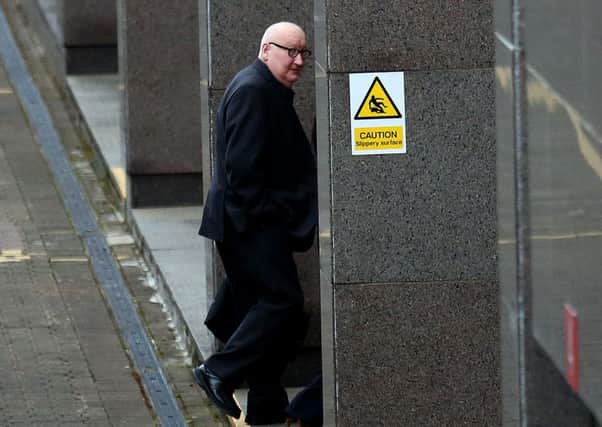Leaders: Glasgow bin lorry crash FAI | Road signage


The inquiry has adjourned while Sheriff John Beckett QC reviews all the evidence he has heard over the course of several weeks of emotional hearings at Glasgow Sheriff Court. But for the families and friends of the six people who lost their lives a few days before Christmas last year, one issue in particular has been the source of considerable distress and acrimony – why no charges were brought against the vehicle’s driver, Harry Clarke.
As far back as February, the Crown released a statement confirming it would not be pursuing any criminal prosecutions against Mr Clarke, a stance reaffirmed earlier this month by Solicitor General Lesley Thomson, who said the Crown’s position had not changed.
Advertisement
Hide AdAdvertisement
Hide AdMr Mulholland yesterday defended this long-standing and controversial opinion, stating that he had “no doubt that the decision was the correct one in law”. That might well be accurate, but it does not make it right. Even with his appreciable role as Scotland’s senior law officer, Mr Mulholland does not sit on the bench.
Yet with his remarks on the Crown’s determination, he is acting like it and there is a worrying suggestion he would rather pre-judge the outcome than let the legal process run its course. The Crown has pursued many cases where it has lost. In most cases. no right-minded individual would propose it should not have pursued them in the first place.
Explaining the decision, Mr Mulholland said: “If there is insufficient evidence in law and proceedings are taken by the Crown, then that’s an abuse of process, hugely damaging to the Crown. We cannot do that, it’s an affront to the rule of law.”
This is, at best, an unconvincing line of reasoning. If followed, it suggests every failure by the Crown is a similar affront, even though the reality is it cannot prevail in every case.
The detail we have heard in the inquiry raises significant questions. Does Mr Mulholland expect the public to believe, as he seems to be claiming, that the Crown was aware in advance of every utterance to be made at the court, and hence was able to rule out a prosecution at such at early stage?
Mr Mulholland says that if the law needs changed, that’s a matter for the inquiry. We cannot expect him to say any different. There is no doubt legislation does need reassessed. Six people are dead and no-one seems to be responsible. For a justice system long renowned for its service to ordinary people, that is not good enough.
Sign of progress on nation’s roads
WHEN we bemoan how our roads are getting busier every year, the source of our ire is usually traffic and congestion. But on lamp posts, kerbsides and motorways across the nation, we are increasingly being bombarded with an array of information, directions and warnings, many of which are superfluous.
Most drivers will have their own bugbears, whether it be the needless signs alerting them to which corporation was responsible for a road’s recent resurfacing or ones which advise of a new road layout ahead when the work in question has been completed for several months, if not longer.
Advertisement
Hide AdAdvertisement
Hide AdSuch examples mean we should welcome the Department for Transport’s promise to end the “ghastly blight” of gratuitous signage on the nation’s roads. Research suggests that the number of signs has doubled between 1993 and 2013 from a modest 2.2 million to more than 4.5 million. That study was confined to England’s roads, but there is no good reason to suppose Scotland has been immune from the trend.
A consultation process proposes a range of measures to curb this scourge, from ensuring signs that are in place for longer than is necessary have a “remove by” date, to prevent temporary signs from being cluttered with adverts and bothersome logos.
Many signs play a vital role in informing and controlling motorists’ behaviour and this clutter-free policy must not be pursued recklessly. As Neil Greig from the Institute of Advanced Motorists points out, a good driver takes their speed and positioning clues from the size and quantity of signs near a hazard. But as a rule of thumb, less is more, especially when the road to common sense is always under construction.